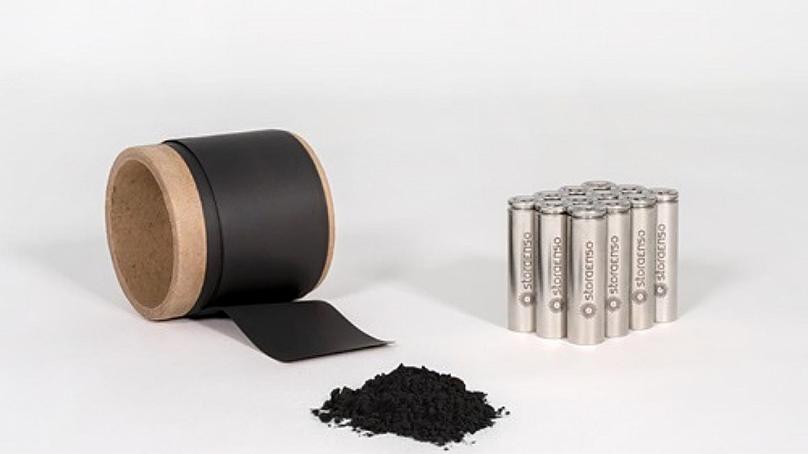Both electric cars and almost all portable electronics, whether phones or laptops, are now powered by lithium-ion batteries. The anode in traditional lithium-ion batteries is made from graphite, which is formed by a chemical reaction in non-renewable carbon compounds. For example, in order for Tesla to reach its production goals of 20 million electric cars a year, it would have to mine more than 1 million tonnes of graphite. Stora Enso proposeses another, more sustainable solution, according to euronews.com
Stora Enso have built a €10 million production line that will create renewable bio-carbon by turning trees into batteries. This will be done by using a wood-based material called lignin.
And they're not alone, as other companies are joining the effort. Ligna Energy is a Swedish-based business doing the same thing with bio-batteries. Their aim? A cost-effective, safe and environmentally friendly energy storage solution that "promotes an accelerated global shift towards fossil-free energy production".

Lignin is the second most common macromolecule in nature after cellulose, deposited in the cell wall of plants to make their structure firm and woody and prevent them from rotting. It accounts for about one third of the total composition of wood. Lignin is separated from wood during the production of cellulose fibres from its pulp. It is then refined into a light carbon powder, which is made into electrode sheets and combined with other battery components to replace graphite.
The company has been producing lignin industrially at Sunila Mill since 2015. Their annual production capacity is 50,000 tonnes, making Stora Enso the largest producer of kraft lignin in the world. The expansion of lignin into its own production lines, along with the patenting of the technology under the Lignode® name, cements Stora's intentions for a smarter battery future.
Stora Enso outlined five key benefits of switching to its Lignode renewable energy technology:
Scalability
Commercial production of these batteries is viable due to the widespread availability of the resource needed to manufacture them - trees.
Sustainability
Manufacturers are committed to sourcing materials from European forests certified for sustainability.
Renew
Almost all LI battery production takes place in China due to poor environmental standards and cheap production costs. Using natural resources would completely eliminate this need.
Faster charging
Stora Enso believes that a fully functional Lignode battery has the ability to charge faster than the fossil fuel-powered market leader.
Better performance at lower temperatures
The battery is operational at lower temperatures, which opens the door to powering more electric cars.
 Florin Cașotă
Florin Cașotă












Any thoughts?